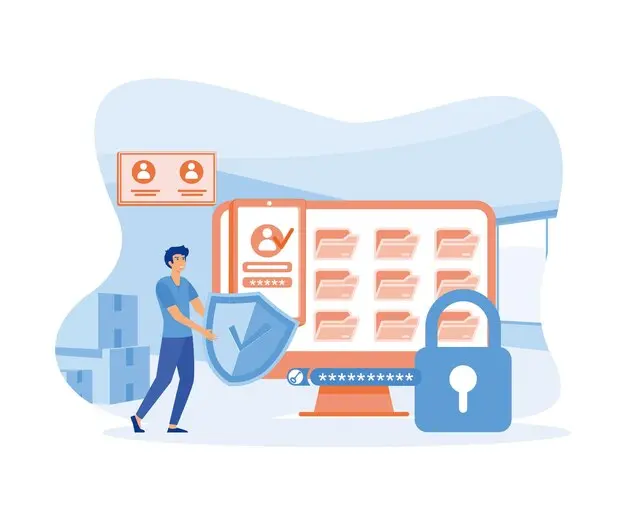
From customer accidents to property damage, general liability insurance helps protect your business from claims that could otherwise lead to costly legal fees and settlements. Whether you’re just starting out or have been in business for years, understanding the importance of general liability insurance can make a big difference in your ability to navigate risks and ensure your business remains financially stable.
What Is General Liability Insurance?
General liability insurance is a broad form of coverage that protects your business against third-party claims for bodily injury, property damage, or advertising injury that occur on your premises or as a result of your business operations. It is often considered one of the most basic and essential types of business insurance.
The key areas typically covered under general liability insurance include:
- Bodily Injury: Covers the medical expenses and legal costs associated with injuries that occur on your property or as a result of your business operations. This could include a customer slipping and falling in your store or someone being injured by your product.
- Property Damage: Covers damages to third-party property caused by your business activities, whether at your premises or on a client’s property. For example, if you accidentally damage a client’s office during a job, your general liability policy would cover the repair costs.
- Personal and Advertising Injury: Protects your business against claims related to defamation, slander, copyright infringement, and other advertising-related injuries. If you unintentionally publish something damaging to another business in your marketing materials, this coverage would help.
- Legal Defense Costs: Covers the costs of hiring an attorney to defend your business in case of a lawsuit, even if the case ends in your favor. Legal fees can quickly add up, and having insurance helps reduce this burden.
Why Small Businesses Need General Liability Insurance
- Protects Against Common Risks
Small businesses face a wide range of risks, and general liability insurance helps protect against the most common ones. Whether it's a customer who slips on a wet floor or someone who gets injured while using your product, accidents happen. Without insurance, you would be responsible for covering medical bills, legal costs, and other expenses that could quickly drain your business funds.
- Peace of Mind
As a business owner, the constant worry about the risks your company faces can be overwhelming. General liability insurance offers peace of mind by knowing that you are financially covered in case something goes wrong. This peace of mind allows you to focus on running your business, knowing you are protected from unforeseen circumstances.
- Legal Compliance and Contract Requirements
In some industries and states, having general liability insurance is not just a good idea—it’s required. For example, many contractors or service providers must carry liability insurance to work with certain clients. Even if it's not legally required, having coverage is often a requirement in contracts with clients, vendors, and landlords. If you don’t have the appropriate insurance, you could miss out on valuable business opportunities.
- Customer Trust and Credibility
Having general liability insurance shows your clients that you take responsibility for your business activities and that you are prepared to handle any potential issues. This can help build trust and credibility with customers, giving them confidence that they are working with a professional company that takes their safety seriously.
- Protects Your Assets and Business Reputation
If an incident occurs that leads to a lawsuit, the costs of defending yourself can be significant. Legal fees, settlements, or judgments could quickly bankrupt a small business if you don’t have the proper insurance coverage. General liability insurance helps protect your assets, ensuring your business can continue operating even after a major incident.
What General Liability Insurance Doesn’t Cover
While general liability insurance covers a wide range of risks, it’s important to note that it doesn’t cover everything. Some types of insurance that are often needed alongside general liability include:
- Workers Compensation: Covers injuries to employees that occur on the job, such as a worker getting hurt while operating machinery.
- Professional Liability (Errors and Omissions): If your business offers professional services (e.g., consulting, legal advice, or design services), this insurance protects against claims that your work was subpar or negligent.
- Commercial Property Insurance: Protects your business property, such as your office building, equipment, and inventory, from damage or theft.
- Product Liability: If you manufacture or sell products, product liability insurance protects against claims related to harm caused by your product.
How Much Does General Liability Insurance Cost?
The cost of general liability insurance varies depending on several factors, including the size of your business, the industry you’re in, and the level of coverage you need. On average, small businesses can expect to pay anywhere from $300 to $1,000 per year for basic general liability coverage. The cost may increase based on your industry’s risk profile—businesses in high-risk industries like construction, manufacturing, or healthcare typically pay higher premiums.
Many small businesses choose to bundle their general liability insurance with other types of coverage, such as property or business interruption insurance, for a discounted price.
Choosing the Right General Liability Insurance for Your Small Business
When selecting general liability insurance for your business, it’s important to work with a reputable insurer who understands your industry and specific needs. Here are some tips to ensure you get the right coverage:
- Assess Your Business Risks: Every business is different, so take the time to assess the unique risks your business faces. Whether you run a retail shop or offer consulting services, understanding your specific exposures will help you find the right level of coverage.
- Review Your Contracts: If you work with clients or vendors, review any contracts or agreements that may require you to carry general liability insurance. Ensure that your coverage meets any contractual obligations.
- Consider the Limits of Coverage: Ensure that the limits of your general liability policy are high enough to cover potential damages or legal fees. If you’re not sure about the right coverage amount, consult with your insurance provider.
- Read the Policy Carefully: Understand the exclusions and limitations of your general liability insurance policy. Knowing what’s covered and what’s not will help you avoid surprises in case of a claim.
- Evaluate Insurance Providers: Not all insurance providers are the same, so shop around and choose one with a solid reputation for customer service and claims handling. Look for insurers who specialize in small business coverage to ensure you get the best protection.
Conclusion: Safeguard Your Business with General Liability Insurance
General liability insurance is one of the most important investments you can make as a small business owner. It helps protect your company from common risks that could lead to expensive legal fees, medical bills, and property damage. Whether you’re just starting out or have been in business for years, securing general liability coverage will provide you with the peace of mind and financial security you need to focus on what matters most—growing and running your business.






